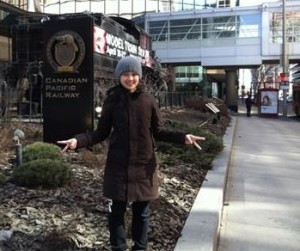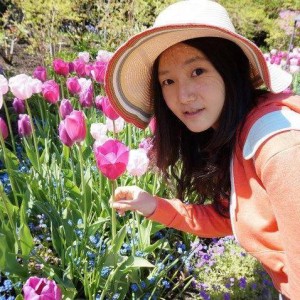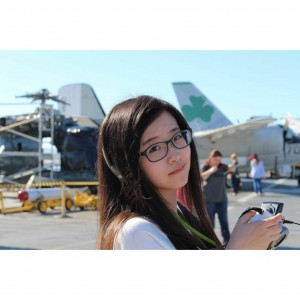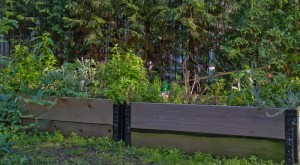The best way to anyone’s heart is through their stomach. What better way to achieve this than through free herbs? We are a group of students in UBC’s Faculty of Land and Food Systems and we’ll be striving to do just that. This blog will be a chronicle of our journey to apply the knowledge gained in our classes in a real life setting.
Introducing Our Team

I am Yin Ling Ho and I am studying Food Market Analysis. I enjoy eating food from a variety of cultural cuisines. I am interested in learning how they treat food in different cultures and what food trends they are adopting

My name is Li-Yun (Candy), Hsu. I am in Applied Biology program majoring in Food and Environment. I enjoy baking, cooking, running and hiking. I support local food as much as I can. I am a vegetarian and I love trying all different types of vegetables, grains, and fruits.

Hi, I am Xiaozhen (Candice) Zheng, and I am on my final year of Food and Nutritional Science double major. I love cooking and enjoying food, and sharing food with my friends and families. I think one of the best things we can do with what we learnt from school is to transfer our knowledge to those who needs or wants them but does not have access to it. I hope what we are doing would contribute to a healthy active community.

I am Jingwen (Aliy) Liu, majoring in Food Market Analysis. I really enjoy the integration of nutrition related knowledge and business. I love painting, 2D design and skiing. By taking this course, I hope I can know more about the how can we can apply the things we learned in a real situation.

Hi! I’m Cynthia Mo, a third year student majoring in Nutritional Sciences. I’m interested in the factors that affect the availability of food in different regions and what effect this has on the general well-being of the communities that live there. Through the courses I’ve taken, my eyes were opened to many food related issues. I hope to be able to affect some of these issues in a positive way, however small.
Introducing Gordon Neighbourhood House and the Herb Gardens
Vancouver’s West End is home to a diverse community of people. Gordon Neighbourhood House (GNH) strives to maintain and serve this population by providing access to programs fit their needs and growth while working with resources and partners within the region. Part of this service is an adherence to a food philosophy that strives for increased community dialogue and community dialogue amongst other goals.

The Community Herb Gardens are part of a larger Urban Farming Initiative that helps to provide the produce for various programs, initiatives, and meals for the Community Lunch Program. What makes the herb gardens so special is that they are available to everyone in the community, whether they have contributed to the upkeep of the gardens or not. There are currently five locations where one can find the gardens, spread between public boulevards and private property, all easily accessible to the general public.
The eventual aim of the gardens is to have plots spread all over the entirety of the West End with enough herb variety and quantity that everyone will have easy access at any time. In providing access to these herbs, GNH hopes to be able to improve the quality of health and meals for the residents of West End. Currently though, the two goals we will be working towards will be looking for locations for potential herb gardens as well as finding ways to increase usage and knowledge of existing and future plots.
Our Goal
Our group as a whole is very much interested in the themes that defined LFS 250: food literacy, food inequality, and food sustainability. By participating in LFS 350, we hope to not just improve ourselves by developing skills that will serve us in our future careers, but also the community that we are working with in a way that will be able to sustain itself long after we’ve finished with our project.
Why the Herb Gardens?
This program will be a great way for use to realize our goals and interests. The gardens help foster community engagement and food literacy. To contribute meaningfully to the initiative, our group will have to utilize our varied skill sets gained from our different majors in a cooperative and professional manner. Through a successful expansion and partnership with parties not already engaged with Gordon Neighbourhood House, we hope to lay a foundation for even greater projects in the future.
First Impressions
Any trepidation our group had about working with our community partner was soon dispelled after our first meeting. The staff were both welcoming and knowledgeable about the various projects and initiatives that GNH runs. Their enthusiasm and positivism soon affected us as well. GNH focuses very much on their community, and it was clear that this was where their passion for their programs stemmed from.
As outsiders coming in to work with the community, we’ll have to be careful not to step on any toes or do any harm as we move forward. We may have the theoretical knowledge required to make this project a success, but without having worked in the community itself, we don’t know the best way to apply it. This is where the advice from Ernesto Sirolli’s TED talk will come in handy. He mentioned that he came to an epiphany after his work with a NGO in Zambia went nowhere. It prompted him to come up with the system of ‘enterprise facilitation’ which is really just another name for asset-based community development (ABCD).
In short, what we’ll have to do is keep a few things in mind. One, we have to remember to look at our project from a viewpoint that emphasizes what we have to work with rather than what isn’t available. The West End is rich with potential and our job will be to both find it and decide what we can do with it. This is not a job we can accomplish on our own, which leads to the next principle: keep the goals of the community leaders in mind and tailor our plans to their vision. As Sirolli so eloquently put it, when trying to figure the best way to help those who already have a plan, the only thing to do is to “shut up and listen to them.” It won’t be easy, but a thing worth doing is a thing worth doing well and we’ll work hard to make that happen.
See you soon!
– Group 20
References
E, Sirolli. (2012, September). Ernesto Sirolli: Want to help someone? Shut up and listen! [Video file]. Retrieved from http://www.ted.com/talks/ernesto_sirolli_want_to_help_someone_shut_up_and_listen
Anonymous
January 11, 2016 — 10:59 pm